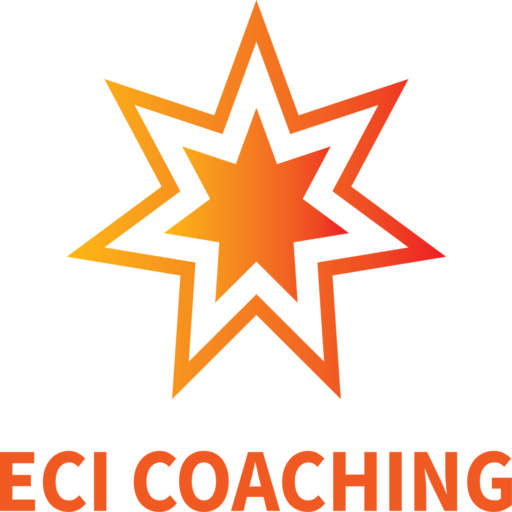The Power of Powerful Questions in Coaching

In effective coaching, true impact often stems not from direct advice, but from the strategic application of powerful questions. A precisely timed, thought-provoking inquiry possesses the unique ability to fundamentally shift perspectives, illuminate new possibilities, and catalyze profound transformation.
For any coach, whether aspiring or established, mastering this art of incisive questioning is therefore paramount to driving lasting influence and achieving meaningful results.
What Are Powerful Questions?
Powerful questions in coaching are more than just well-worded prompts, they’re a gateway to deeper awareness and meaningful change. These coaching questions are open-ended, inviting clients to reflect rather than react. They avoid yes-or-no answers and instead encourage the exploration of thoughts, emotions, and goals.
This helps clients uncover their insights, build confidence, and take ownership of their decisions. It’s less about solving problems and more about guiding discovery.
What Are Examples of Powerful Coaching Questions?
Powerful coaching questions serve a focused purpose: to support growth, clarify direction, and unlock personal potential.
These types of questions are often future-oriented. Instead of dwelling on the past, they help clients envision the life or outcomes they want and consider the steps they can take to get there. They make space for insight, possibility, and action.
So, what powerful questions can you use in your coaching sessions to spark meaningful progress?
Here are a few good coaching questions to ask:
- What does success look like to you?
- What are your goals, and what’s stopping you from achieving them?
- What are your strengths, and how can you leverage them?
- What actions can you take today to move forward?
Each question encourages clients to think ahead, take ownership, and explore their path purposefully.
General Coaching Questions vs. Powerful Coaching Questions
Coaching conversations frequently commence with general questions. While these have their essential place, they typically yield surface-level insights. Such questions effectively clarify events, emotional responses, or immediate actions taken, yet they often fall short of driving the deeper insight or meaningful, lasting change that coaching aims to achieve.
Examples of general coaching questions include:
- What happened?
- How did you feel?
- What did you do?
These prompts are undoubtedly useful for gathering context and establishing a baseline understanding. However, their primary focus tends to remain on past occurrences, and they may not sufficiently challenge the client to look beyond their current circumstances or consider future possibilities.
In stark contrast, powerful coaching questions serve a profoundly different, more strategic purpose. They are meticulously designed to stretch conventional thinking, unlock new possibilities, and decisively guide clients towards greater clarity and actionable steps.
More examples of powerful coaching questions include:
- What did you learn from that experience?
- What are your options now?
- What’s the most important thing you can do next?
The distinction between these two types of questions is subtle, yet profoundly significant. Rather than merely collecting information, powerful questions empower clients to reframe challenges, foster a new perspective, and propel themselves toward more empowered and strategic decision-making. It is the fundamental difference between simply understanding a client’s present position and effectively helping them envision and actively discover where they could go.
How to Ask Powerful Questions in Coaching?
Asking powerful coaching questions is both an art and a skill. Here are some simple yet impactful ways to sharpen this core coaching ability:
1. Listen Actively to Understand the Client’s Context
Coaches need to listen beyond words, such as by paying attention to tone, pace, emotions, and pauses. These subtle cues often reveal what the client isn’t saying outright, helping you grasp the deeper meaning behind their words and respond with questions that truly resonate.
2. Ask Open-ended Coaching Questions That Encourage Exploration
Open-ended questions are essential for deeper discovery. Unlike yes-or-no questions, they don’t limit the client’s response, they encourage storytelling, reflection, and insight. This inquiry helps coaches move conversations from passive answers to active self-awareness.
3. Use Questions to Challenge Limiting Beliefs and Assumptions
The right question can disrupt unhelpful thought patterns. By highlighting gaps in logic or encouraging a new perspective, coaches help clients break free from self-imposed limitations.
4. Create a Safe Space for Clients to Reflect and Respond Honestly
A safe space isn’t just about being kind, it’s about how you respond. Coaches can create this by listening without judgment. When clients feel safe, they’re more willing to share openly and explore what’s truly beneath the surface.
5. Be Patient and Allow Silence for Contemplation
Silence isn’t empty, it’s where insights often emerge. Give clients the space to process and respond in their own time.
ECI Coaching Can Help

If you’re ready to grow as a coach and make a deeper impact in every conversation, learning how to ask powerful questions is a skill worth investing in.
At ECI Coaching, we’re committed to helping you build that ability. As the only coaching school in Singapore offering an ICF-accredited leadership coach training program, we provide a trusted pathway for coaches who want to deepen their skills and make a real difference.
Our ICF coaching in Singapore is guided by our TruCoach methodology, which is rooted in principles governing human evolution, such as how people grow, adapt, and transform over time. This foundation shapes how we train coaches to ask powerful questions, not just to gather information but to spark reflection, challenge inner narratives, and guide clients toward personal breakthroughs.
By understanding how change naturally unfolds, you’ll learn to ask questions that meet clients where they are, and move them toward where they want to be.
Contact us to learn more about how ECI Coaching can help you master this essential coaching skill.
Empower Growth Through Powerful Coaching Questions
Mastering the ability to ask powerful questions isn’t just a coaching technique, it’s what sets impactful coaches apart. Be the coach who sparks clarity, unlocks potential, and guides others toward transformative growth.
Join ECI Coaching’s training program today to learn how to ask great coaching questions and earn a certified coaching certificate that reflects your ability to lead purposeful, results-driven conversations.

